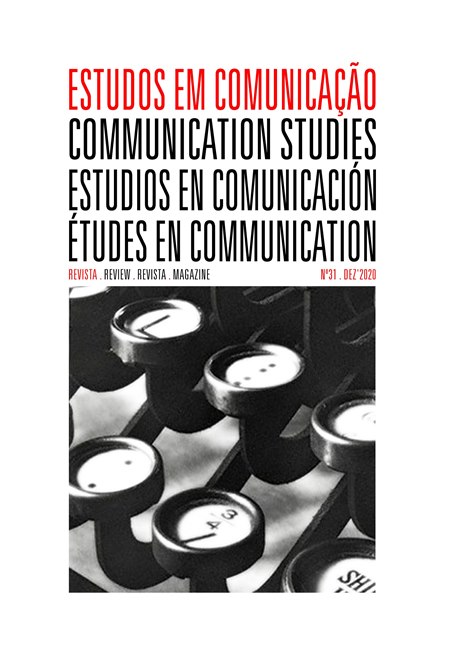Right-wing articulation on Facebook: identifying key actors of the Movimento Brasil Livre and Vem pra Rua using Analysis of Social Networks methods
Keywords:
social networks analysis, Movimento Brasil Livre, Vem pra Rua, social movementsAbstract
This work analyzed two Brazilian political groups that have millions of followers on virtual social networks, who have been articulators of major mobilizations in recent years. The question that guided this investigation was: with whom are the Movimento Brasil Livre and the Movimento Vem Pra Rua related to on Facebook? In order to carry out the research, data collections and analyzes on Facebook were carried out between 2018 and 2019. Among the results, the main actors belonging to and linked to these groups were analyzed, and there was also an online link among politicians who identify themselves as the right-wing side of the political spectrum, internal movement leaders, and part of the media (including the alternative). The theme is relevant for addressing contemporary challenges of online research, Social Network Analysis (ARS), and new political movements in the role of producers and disseminators of political content.
References
Alonso, A. & Mische, A. (2016). Changing repertoires and partisan ambivalence in the new Brazilian protests. Bulletin of Latin American Research.
Amaral, M. (2016). Jabuti não sobe em árvore: como o MBL se tornou líder das manifestações pelo impeachment. In I. Jinkings, K. Doria & M. Cleto (eds.), Por que gritamos golpe?. São Paulo: Boitempo Editorial.
Araújo, R; Penteado, C. & Santos, M. (2016). Movimentos políticos pelo impeachment de Dilma Rousseff e suas organizações na Internet. 40º Encontro Anual da ANPOCS.
Barabási, A. (2009). Linked: a nova ciência dos networks. São Paulo: Leopardo Editora.
Bennett, L. & Segerberg, A. (2013). The logic of connective action: digital media and the personalization of contentious politics. Cambridge: Cambridge University Press.
Cavalcanti, D.; Bringel, E.; Jardelino, F.; Oliveira, T. & Zucolotto, V. (2019). Digital activism and indignation nets in Brazil: the pressure groups. Journal of Politics in Latin America (Print), 1.
Codas, G.; Cruz, S. & Kaysel, A. (2015). Direita, volver!: o retorno da direita e o ciclo político brasileiro. São Paulo: Editora Fundação Perseu Abramo.
Chaloub, J. & Perlatto, F. (2015). Intelectuais da nova direita brasileira: ideias, retórica e prática política. 39º Encontro Anual da ANPOCS.
Cherven, K. (2015). Mestering Gephi network visualization. Birmingham: Packt Publishing.
Fontes, A. (2012). Redes sociais e poder local. Recife: Editora da UFPE.
Granovetter, M. (1973). The Strength OfWeak Ties. American Journal of Sociology, 78: 1360-1380.
King, G.; Keohane, R.; Verba, S. (1994). Designing social inquiry. Princeton: Princeton University Press.
King, G. (1995). Replication, replication. PS: Political Science & Politics, 28(3): 444-452.
Laclau, E. & Mouffe, C. (1987). Hegemonía y estrategia socialista. Madrid: Siglo XXI.
Machado, M. (2013). Discursos pentecostais em torno do aborto e da homossexualidade na sociedade brasileira. Revista Cultura y Religión, 7(2): 48-68.
Marwell, G. & Oliver, E. (1989). Social networks and collective action: a theory of the critical mass. American Journal of Sociology, 94(4): 502-534.
Molina, J. (2001). El análisis de redes sociales: uma introducción. Barcelona: Bellaterra.
Olson, M. (1971). The logic of collective action: public goods and the Theory of Groups. Cambridge: Harvard University Press.
Panizza, F. (2006). La marea rosa. Análise de Conjuntura, OPSA, 8.
Pereira, C. (2011). Coalitional presidentialism and side payments: explaining the Mensalão scandal in Brazil. In T. Power & M. Taylor, Corruption and democracy in Brazil: the struggle for accountability. Notre Dame: UND Press.
Pollock III, P. & Edwards, B. (2020). The essentials of political analysis. Washington, D.C.: CQ Press.
Recuero, R. (2009). Redes sociais na internet. Coleção Cibercultura. Porto Alegre: Sulina.
Recuero, R. (2014). Contribuições da Análise de Redes Sociais para o estudo das redes sociais na Internet: o caso da hashtag #Tamojuntodilma e #CalaabocaDilma. Revista Fronteiras – estudos midiáticos: 60-77, maio/agosto.
Rocha, C. (2018). “Menos Marx, mais Mises”: uma gênese da nova direita brasileira (2006-2018). Tese de Doutorado em Ciência Política, Universidade de São Paulo, São Paulo.
Rodríguez, A. (1995). Análisis estrutural y de redes. Cuadernos metodológicos, (16).
Rogers, R. (2018). Issuecrawling: Building lists of URLs and mapping website networks. In C. Lury, P. Clough, U. Chung, R. Fensham, S. Lammes, A. Last, M. Michael & E. Uprichard (eds.), Routledge Handbook of Interdisciplinary: Research Methods (pp. 169-175). London: Routledge.
Sousa, M. & Souza A. (eds.) (2013). Jornadas de junho: repercussões e leituras. Campina Grande: Eduepb.
Sorj, B. & Fausto, S. (2016). Ativismo político em tempos de internet. São Paulo: Edições Plataforma Democrática.
Travers, J. & Milgram, S. (1969). An Experimental Study of the Small World Problem. Sociometry, 32(4).
Valentini, C. & Kruckeberg, D. (2012). New media versus social media: a conceptualization of their meanings, uses, and implications for public relations . In S. Duhé (ed.), New Media and Public Relations (pp. 3-12). Nova York: Peter Lang.
Downloads
Published
Issue
Section
License
Estudos em Comunicação/Communication Studies is an Open Access journal. All its content is freely available without charge to the user or his institution. Users are allowed to read, download, copy, distribute, print, search, or link to the full texts of the articles in this journal without asking prior permission from the publisher or the author. Estudos em Comunicação, by Labcom, is licensed under a Creative Commons Atribuição-NãoComercial-SemDerivações 3.0 Unported License. By submitting your work to Estudos em Comunicação/Communication studies you confirm you are the author and own the copyright, that the content is original and previously unpublished, and that you agree to the licensing terms.


